Today we’re going to talk about a topic that I think is so important. Probably one of the most important things that we can talk about. Because it’s one of the things that nobody really understands or is even aware of and that is what is the impact of somebody else’s addiction on you? What’s the trauma left behind? Make no mistake being in a relationship with somebody who is addicted is like being in a war without weapons. What ends up happening even when the war ends and it’s over, they get treatment, they get better or something changes, you are still left with wounds. Shrapnel that has gone into your body. If we don’t understand the shrapnel, if we do not identify the impact of that addiction on our lives or the lives of our children, we are doomed to keep repeating those patterns for generations to come.
It’s our goal here to end those toxic dysfunctional cycles for good and help you get your power back so that you can live a life on your terms. We want to heal the psychological impact, where you’re constantly ruminating and strategizing and overthinking everything. We want to heal the emotional impact, where you have trouble emoting period, or expressing yourself or communicating how you’re feeling. We want to heal that so that again, you can live the life that you’re meant to live. That we’re all here to live which is to be happy, whole, fulfilled human beings. So start the wheels turning in your mind. What do you think the impact has been on you? There’s so much help for addicts and alcoholics.
I used to be one of those that just dedicated my life primarily to helping addicts and alcoholics and I loved it. I loved being able to make a difference in their lives and seeing them heal and it’s such important work to be able to do that. What I started to notice in the decade that I was just working with addicts and alcoholics was that their families were getting lost in the mix and here’s why it’s really important to heal. If somebody still left with all that anger or sadness or resentment or misunderstanding, and the addict or alcoholic gets better, and goes back into that family dynamic. It’s like putting a clean dish back in a dirty dishwasher. It has an impact. The family is like an immune system for a recovering alcoholic or addict. Everybody needs to be well and healthy in order for that organism to function at its best.
If you have children, this is especially important today, so that you can understand the impact. There are many great books, Adult Children of Alcoholics. The series by Janet Woititz and her work that was started in the ACOA. There is a website ACOA. NACoA is the founding establishment that talks about the impact of addiction. There are lots of great resources and I’m literally just scratching the surface of how addiction impacts us. It is much wider, broader, deeper. It’s my attempt to not oversimplify the impact, but present it to you in a way that makes it digestible for you so that you can start to build the awareness. Without awareness there’s no healing. We’re going to start with an easy acronym. A way to understand the common character traits that we all have. If you go to other websites like NACoA, or if you search on ACOA, what you’re going to find is a laundry list, it’s called of different ways we’re impacted.
I’m not saying this to you so that you can be like, “Oh my God, I have all this stuff wrong with me. Great, great. Now I’m like permanently scarred and wounded.” I’m not telling you this so that you can feel disempowered. I’m telling you that so you can feel empowered because many of us are impacted and on an autopilot. This is showing up in our relationships with other people, in our work and our ability to make things happen and we don’t really always connect the dots. Oh my God. This is the shrapnel. This is the fallout of that experience. It’s not me. It’s something that I have to heal. It’s not just how I’m wired. It’s actually a part of my conditioning, being subjected to that behavior of somebody else over and over and over again.
I have a great little acronym that I use that you can follow along with me and make your own notes about how this may have impacted you in a specific way underneath of the blanket area that I’m going to write about. The acronym is CISTER and I called these the deep six. The CISTER, it’s a CISTER with a C because we have brother, cousins that are on this journey with us too. The CISTER acronym, the deep six are the six ways that we continually self-sabotage as a direct result of prolonged exposure to somebody else’s addiction. It’s a form of codependence and codependence is just a way to function in dysfunction. We pick on this way of being, these traits and then we move into how to function. Let’s dive into them.
The first piece of shrapnel that’s left by an addict or an alcoholic is Control Issues. This can show up many, many ways for us. It’s usually in black or white because we are black or white people. That’s one of the traits, we operate in extremes. It’s either all or nothing. As you can imagine, Control Issues run the gamut. They can run the spectrum all the way. You’re extremely rigid. You’re inflexible. You do not seek the input of other people. You are the only person that you know you can rely on. It’s your way or the highway. You allow for no other people to come in and offer their perspective or opinion because you know things could go wrong if you’re not in control. Or you are out of control, you’re addicted to chaos. You have no sense of stability in your life at all whatsoever.
Do you see how wide of a spectrum this control issue can be? The middle is the healthy person where we know what we can control. We control that and we let go of everything else. But the person that’s over here on this spectrum addicted to chaos believes that they have no control over anything and this comes from a victim mentality. It can, but the person who’s addicted to chaos finds themselves seeking relationships with other addicts or alcoholics, even though they grew up with it, or they just got out of one. They keep finding the same kind of relationships over and over again. The person over here that’s very controlling and rigid has a hard time even letting anybody in at all whatsoever. They don’t want to be vulnerable. They need to appear like they have it together at all times. Ask yourself, where could you be on that spectrum and how are control issues showing up for you?
The second way that this impacts us is in our identity. We think we just are who we are. Well, that’s just how I am. I’m just born that way. That’s just is what it is. In fact, I remember I was in a woman’s group one time, and this one girl said to me “You know I’d like to be more vulnerable. You know, I’d like to be able to like, let my guard down. I’d like, you know, but this is just the way I am. This is like, take it or leave it. I mean, I’m just, you cannot penetrate me. You cannot, you know,” and she was just like Sue. She was very sweet on the inside. You could tell, but she had this really super tough exterior. Like this is just the way I am and I’ll never forget it. I made a birth canal out of the chairs that were inside the women’s group and I literally got down on my hands and knees and pretended to climb through that birth canal and struggled my way through and acted like I was inside of there and then I came out, I was birthed. I looked around and I was like, “waah, mother fucking waah.”
Is that how you came into the world? You think you were born with this tough exterior. Everybody was laughing, of course, but the point is we’re born just open and trusting and free and really with no kind of personality. Just endless possibility. We survey the land and look around at the people in our lives and figure out how to function. Even if you had a perfect relationship in your childhood, nobody did by the way. When you have prolonged exposure to an addict or an alcoholic, you adapt a personality in order to function in that environment. Whether it’s your hard core and nothing gets to you and nothing bothers you and you’re Alcatraz. Or you’re the pleaser running around, making sure that everybody is okay all the time and trying to protect everybody, or you’re the fixer.
I actually have eight different personalities that I’ve identified as a result of being with an addict or an alcoholic or another wise toxic person. You can download that free e-book over at lovecoachheidi.com and you’ll find the eight different personalities. That’s a great place to start. Not only can you identify your personality, you can identify the personalities of your children and see how this has maybe impacted them. How are they behaving? Awareness is the first step. The kid that you just think that’s how they are. They’re up in their room all the time and isolative. They watch their video games and they don’t want anything to do with a family. That’s not a kid who necessarily was born that way. That’s a kid who learned my needs don’t matter. I’m going to be a withholder and I need to keep to myself and mind my business and not get involved. Then that way I don’t get hurt because what I think doesn’t matter anyway.
If you think that this kid is just naturally helpful and wants to help everybody all the time and save things and make sure everybody’s okay. Likely that’s a kid who was trained into that behavior and learned very early on when I’m the fixer and I’m the achiever or the performer. I’m the one who, as long as I’m doing well and I’m successful, then I can take some of the heat off of the addict or alcoholic, turn into who they need to turn into. Awareness is really important. You need to know who you’ve become in order to function in the dysfunction. So that you can learn who you’re not any more. Who you’re unwilling to be. Excavate the real you that’s underneath of this coping mechanism behavior, the adaptive personality that you took on in order to function in the dysfunction.
Yes, hopefully this is making some sense. Let’s go to the S in our acronym of CISTER. This is Self-Esteem Issues. This is huge because we can think being I’m so confident. I know I’ve overcome a lot. Likely you are a survivor. You are tough person, but what you find yourself asking is how can I be so smart yet so stupid in other areas? How can I have success over here, but be failing over here? How can I see right through people, except when it comes to my own life and I keep getting taken advantage of, or blindsided by other people that I care about? How do I allow myself to keep getting hurt? How can I have such bright ideas and start things, but not finish them and see them through? How come I don’t care about what most people think, except that one opinion that totally crushes my soul and knocks me off my axis?
It’s because when you’re in a relationship with an addict or alcoholic, or you grew up in that dynamic, it creates self-esteem issues. All of your focus and attention is on that person and believe it or not, whether you want to think this is true or not, there is a piece of you that equates you to the reason that they’re using or drinking. Whether you’re a child or a wife, you think on the inside, deep down, if you could just be a little better, or they just saw your value, that they would quit. That directly impacts you and lasts a lifetime as far as your belief that you are enough. Those self-esteem issues are apparent, and maybe how much money you allow yourself to make, or the jobs that you hold, or the amount of work that you take on when you feel like it’s never enough. Not enough shows up in many ways.
It’s not enough. I have to do more, more, more. There’s not enough. You have a lack mentality, somewhere, a scarcity mindset. You’re not enough. You are always scrutinizing everybody else and have perfectionistic kind of standard. Or I’m not enough and this is the worst thing where you find that no matter what you always feel at the end of the day, like you’re just waiting to be found out like imposter syndrome. There’s a fraud going on underneath. That’s impact. That’s shrapnel. That’s not just you. That’s the shrapnel and you have to sit with somebody who’s an expert at understanding how to excavate shrapnel. That’s what I do. Once you identify the shrapnel you have, it’s not enough. Awareness isn’t enough. You need to now actually extricate the shrapnel and sit with somebody who’s qualified like myself to help you do that.
To help you undo that programming, that subconscious programming that got put in there. The T in CISTER is trust issues. All by the way, self-esteem could go either spectrum. I’m the best in the world and nobody else is measuring up that perfectionism, that kind of standard, or I’m not enough. All these things run the gamut. Trust issues run that gambit too of all or nothing thinking. You over trust and you trust the wrong people. You trust everybody and you get blindsided. You overshare, you tell too much stuff or you trust no one and you lock her down. You don’t trust anybody, or you don’t trust yourself, your own intuition. You’re blinded by emotion and you get sucked into these kinds of relationships that mirror your old baggage and you keep trying to heal it by tracking the same kind of relationship over and over again.
Even when you see the results flags, you’re like, I should have known that. I should have known better. But you don’t have the self-esteem to follow that intuition. You’re always kind of second guessing yourself. That’s a symptom of the shrapnel. The E is emotions. Again, either totally buttoned up. You do not communicate your emotions. You keep them bottled into yourself and you are taking time off. You put them down and then you explode or you have dysregulation problems with emotions and you’re all over the place. You’re always sharing your emotions. You’re always very emotional and you don’t know the middle way of how to regulate your emotions in a way that is healthy. A healthy way to express your emotions, to share your emotions. We can be that type of person that says I don’t have any emotions, nothing bothers me and affects me.
That’s just a coping mechanism. Likely you are a very sensitive person, just like “my way, mother fucking way girl.” But you learn very early on that your sensitivity was used against you. You found that by the addict or alcoholic, when you showed your emotion, it was taken as a sign of weakness. It was used against you in some way and you were hurt. When you pleaded with them to stop, how much you love them, how much it was hurting the family, and they continue to use and drink. Now you need to learn how to regulate those emotions. Express them appropriately and communicate them in a way where you’re rooted in your power and you are doing the dance of power and vulnerability together. That’s the middle way that we’re always trying to reach from this very black or white, or all or nothing mentality that being impacted by addiction creates.
We know why that is don’t we? Because it is very all or nothing. You’re either sober or high as hell. There is no in between. You’re either using or in recovery. That makes sense. We live our lives by that barometer. It’s either great, or it’s a shit show. It’s awesome, or it’s hell. The middle way is how life really runs, but not in a relationship with an addict or alcoholic. It’s very all or nothing. That behavior, that mentality is definitely etched and ingrained in your mind. The last way that affects us and probably the most poignant way, the biggest way that it affects us is actually in the area of our relationships. It manifests many, many ways. Our intimacy, the ability to reveal and share ourselves. The oversharing and to be able to communicate with people and being able to trust and open up and allow friendships and allow relationships without that fear of being used or manipulated in relationships.
We don’t see red flags with people. We get into bad choices with people in business or people in our work environment. We have conflict and we don’t know how to resolve that conflict. These are things that we should have learned, but you don’t learn when you’re in a relationship with an addict or an alcoholic, because the thinking part of the brain that knows what to do is overridden by the reptilian part of the brain, which is just in survival mode. You have been in survival mode when you grew up with that addict or alcoholic. You were in survival mode when you were in a relationship with that addict or alcoholic. To your defense, you haven’t had a lot of time to think and be proactive. A lot of your life is reactive or proactive to try to avoid the problems. That’s being strategic and not in alignment with your true feelings.
You’re trying to play chess where the world’s playing checkers. You always need to be five steps of everybody. That’s part of the thing, is overthinking and over analyzing and trying to prevent problems before they happen. That’s the control issue that we talked about. Do you see yourself? Where are you? How is this showing up for you in particular, in your life? I want you to leave a comment. Comments are the divine gift that you can give me, because it helps me help more people. That’s the goal with my addiction impact initiative. I want to raise awareness on this for the world to see, oh my gosh, I’ve been impacted by this and here’s exactly how so that we can heal. If we can heal one ache at a time, we break the cycle. Heal the ache, break the cycle.
That’s what we want to do. I want you to leave a comment and tell me how it’s impacted you. Here’s where I can help. It’d be my pleasure to come alongside of you and if you’re not going to let me help you, let somebody help you. We want to break the cycle. It starts with you. If you’re aware of the trauma and the shrapnel, even though you didn’t create the trauma, even though you didn’t ask for the shrapnel, it’s still therethough you didn’t create it. It is your responsibility to heal it. I want you to be with me because I believe I’m qualified and equipped to do it. I’ve been doing it for the last decade, but if it’s not me, let it be somewhere. You owe it to yourself, into the generations to come to take some kind of action so that we can heal the planet.
That’s what we really want to do. One wounded adult at a time. Heal the children, the next generation. That’s the whole reason I wake up in the morning and how I am able to help you is I have a program called Life School. Life School is a series of four semesters focusing on these different aspects. It just so happens that coming up in October our fall session is addiction in the family where you learn how addiction has impacted your family. All the ins and outs of addiction. How it impacted you personally. What is the science behind addiction? So you can really understand it. What are the myths of addiction? What is the boundary? Can you prevent a relapse? What to do when somebody relapses. The exact verbiage to use when somebody is using. How to communicate with them. Everything you need to know that I taught for a decade inside this family program to hundreds and hundreds of families.
I’m encouraging you to come over to lovecoachheidi.com and check that out and enroll for the fall semester. Hopefully I’ve made an impact in your life today by increasing that awareness. I encourage you to take the next step with me and let’s get to work so we can heal generations to come and be cycle breakers.

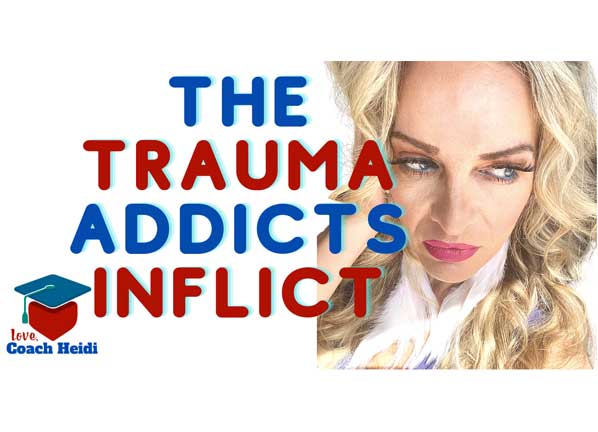
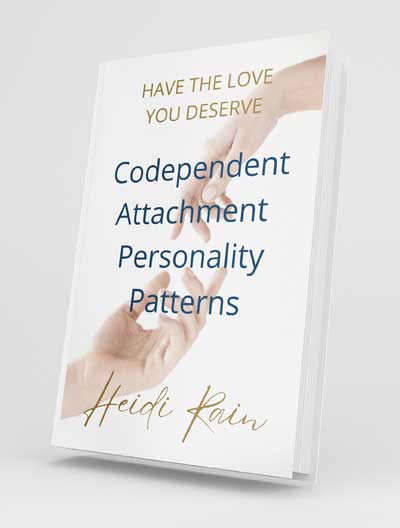
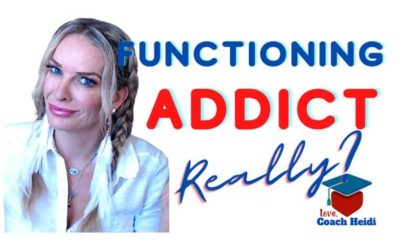
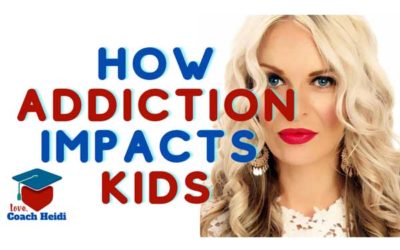
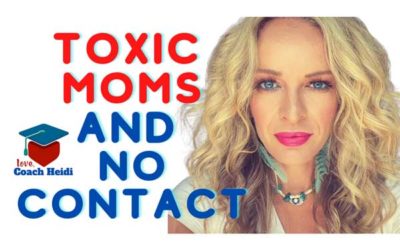
This was such powerful reading that went right to my heart ❤️I really feel like you get it!